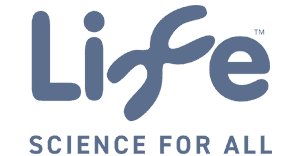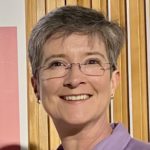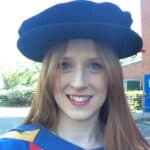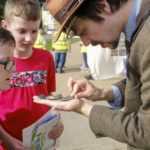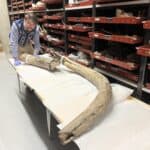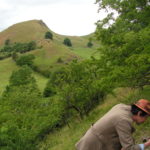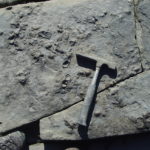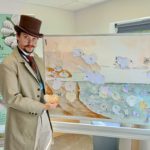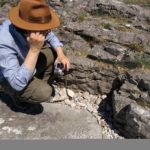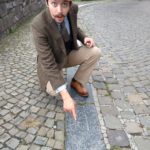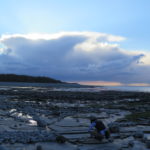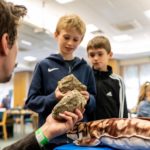Profile
Jed Atkinson
-
About Me:
What-ho! I’m Dr Jed Atkinson and I’m a palaeontologist with a curly moustache and a hat!
-
Read more
No matter what job I currently have I always describe myself first and foremost as a palaeontologist. I have always been interested in understanding the ancient past through looking at the remains of the creatures that lived there and by studying the rocks. Palaeontology isn’t just about dinosaurs; in fact, I’ve never worked on them! My interest lies in shelly sea creatures and fossil plants, not only are these fossils much easier to find, but they can also tell you a lot more about what life was like millions of years ago. To truly understand the past though you need a good understanding of the modern and so I’m really into nature and archaeology. I collect old bones and shells and all sorts of things to study them in my spare time. All this makes going for a walk in the countryside rather difficult, I just keep stopping to look at a rock, a plant, or a bug. I might suddenly wonder off because I spotted something that looked interesting and come back carrying a sheep skull or something similar! I certainly feel as though I would have fitted in well with the Victorians, like them I’m not very good at specialising in one thing, I like to do a bit of everything, I also don’t leave the house without a hat, usually tell the time with a pocket watch, and have a curly moustache!
-
My pronouns are:
he/him
-
My Work:
I work at Leeds Discovery Centre which is stores over 1 million objects including lots of stuffed animals, roman artefacts, and objects from all over the world. I’m also a geoscience communicator (which is just a fancy way of saying I teach people about rocks, fossils and the earth).
-
Read more
I currently have two main jobs, one is as an Education Officer at a museum and the other is a geoscience communicator – these are both great fun because I get to spend a lot of time looking at rocks, fossils and lots of historic objects.
Working at the Leeds Discovery Centre is great, I get to talk to people about our massive collection of objects and specimens. I also teach children about the Stone Age, the Romans, Evolution, Animals, and much much more!
We’re a slightly unusual museum because we let people touch and hold our objects – including a 4.5 billion year old meteorite!
For my other job I get to think about how I can use fossils to tell the stories of the rocks and landscapes all around us! I get to make and build fun activities for children and families to enjoy and to learn through. Our team works right across the North of England. This job involves lots of different tasks because we first need to understand the rocks and fossils, we want to teach people about. This means we need to go out in the hills, on to the beaches, (sometimes even caves!) or into museum stores to study the rocks and fossils scientifically. Once we have worked out what is going on we can start to think about fun ways to teach it – this could be anything from a 3D jigsaw challenge to building a coral reef entirely made from pasta! The best bit about this job is when we go to science festivals and get to talk to lots of people about a subject I’m very passionate about!
-
Education:
I went to school in a little Church of England secondary school, just on the outskirts of York. For my GCSEs I took all three sciences (though I wasn’t very good at physics), geography, art, maths and English – I also took German (If only I could remember it, I would be on the way to completing my three wishes!).
After school I went to York College to study Geology (the study of the earth and the best subject EVER!), chemistry (where I might have accidently made something a little explosive… turns out following the instructions was quite important!), Physics (I still wasn’t very good at it), Maths (I was much better at that) and Geography (to replace physics after I finally decided to give up on a bad job).
Following on from this I spent the next eight years at the University of Leeds! There I did my undergraduate degree for three years in geology. This was brilliant, we had at least thirteen weeks of field trips. We got to see some of the oldest rocks in the world, find trilobites and exciting gemstones, and even visit an extinct volcano right here in the UK! After those three years I then stayed at the University of Leeds to gain my doctorate. I studied how life recovered after a huge volcano caused extreme global warming and killed off lots of sea creatures. I mostly studied shellfish like scallops, mussels, and clams.
-
Qualifications:
For my GCSEs I took lots of subjects but some really stand out. Despite not being able to spell and having terrible handwriting I did well in both Maths and English. These two subjects have been very important all through my career, there is a lot of maths in palaeontology, you often need to show that you have found something statistically important or work out what range of sizes or shapes is considered normal for a species. Then English is vital because you have to write about it, to become a doctor you basically have to write a book (which isn’t as scary as it might sound, you get a lot of guidance and help). I also have a GCSE in geography, which goes very nicely with geology because the landscape processes today are the same 100 million years ago. Then I have the three sciences, these helped me to become a science teacher and also a palaeontologist. Geology and palaeontology are sciences so to study them at university you need to have a science. I also have a diploma in ICT, most employers need you to have a good understanding of computers.
Although I did an A level in geology, you don’t need to if you want to study it at university – you just need a science because in the first year at uni the lecturers go over the A level material again (although quite quickly) to get everyone up to speed. So don’t worry if your local college or sixth form doesn’t offer geology.
I have a couple of university degrees; my first degree is in geology and my second is a teaching degree called a PGCE. If you are interested in teaching this is the type of degree you need. I got my one whilst working in a school which I think is the best way to get a PGCE, learn on the job rather than in the lecture theatre.
-
Work History:
My work history is mostly with the University of Leeds, I worked with a team that went around local schools teaching geology and at the same time I was helping to teach the undergraduate students geology too. Then I got a short job in one of the science labs where I prepared leaves for chemical analysis. After that I started doing artwork for geology trails, books, and logos. My next job was as a researcher looking into how the amount of oxygen in the oceans changed over time. Unfortunately, this job ended around the same time that the pandemic kicked off and I finally left the University of Leeds. Finding work at this time was quite difficult and so I decided to retrain as a science teacher in a secondary school. This was a very busy job, I was teaching chemistry, biology and yes even physics! I actually understood it this time though! Turns out if you have to teach something you really go the extra mile to try to understand it. I did this for a few years and in a few different schools across West Yorkshire and Lancashire. All the while I was working with my friends to set up our geoscience communication group. I left teaching at the end of last year and now I work in a museum and for our own education group.
-
Current Job:
Learning and Access Officer – Leeds Discovery Centre
-
Employer:
Leeds City Council
-
My Interview
-
What did you want to be after you left school?
Be a palaeontologist
If you weren't doing this job, what would you choose instead?
That’s a tricky one! I guess I would be a full-time scientific researcher in a University – or an antiques dealer, that could be good fun too!
Who is your favourite singer or band?
That’s easy, Aurora, although Spotify tells me it is Sigrid (I do not believe Spotify…)
What's your favourite food?
Sea food! It’s a meal and a scientific investigation in one! (quite a few specimens in my collection are the shells and bones of things I had for lunch…)
Tell us a joke.
Why are geologists never on time? Because they consider a million years to be a very short span of time
-
